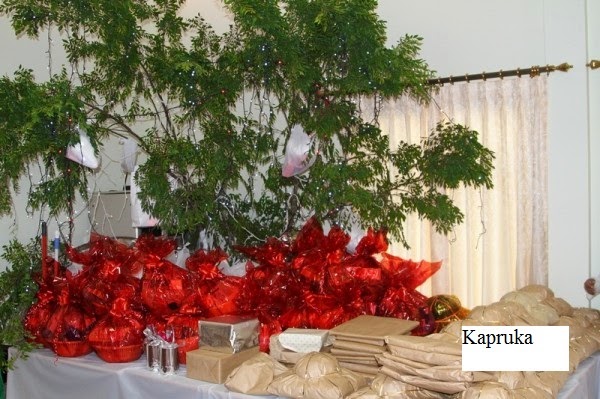Vap Full Moon Poya day is
a significant day for Buddhists because of the Katina Pinkama as well several
other events which took place on this day. Buddhist monks complete
the Vassana kala or the rainy season sojourn on Vap Full Moon Poya Day. This
three month period is very important for ‘Savanak Piris’ or four groups of the
Buddhist community viz. “Bhikkhus” –monks, “Bhikkhunis” nuns, “Upasaka“–lay
male devotees, “Upasika” lay female devotees, because this is the period of the
year when they can accumulate merit in various ways. Buddhists perform a series
of special religious activities; the most important of them is the Katina
Cheevara pooja or offering of robes to the Maha Sangha.Katina Cheevaraya is a
web of cloth made in a day and presented to a Buddhist priest.
Katina Puja or offering
of new robes to Buddhist priest is long standing religious custom prevailing in
all the countries where Theravadhi Buddhism prevails. Katina is offered to
Buddha on the Vap full moon poya day and in Sri Lanka Katina pinkama ceremonies
are performed in Buddhist temples during the period from Vap full moon poya day
to Ill Full Moon Poya day. In the words of Buddha this is the noblest religious
activity for Buddhist in which limitless merit is accumulated.
The assembly of monks decide the most suitable monk to receive the
katina robe. This is always done through consensus after considering whether
the monk had adhered to the code of conduct during the ‘vas' period, whether
the robes he possesses are torn or worn out and whether he is in need of a
robe.
The cloth is then given back for stitching and if it is a white cloth, it will
be dyed after sewing, in the suitable colour. The monk who receives the robe
wears it and delivers a sermon in the evening on the merits of the katina
pinkama.
Apart from the robe, the devotees make offerings throughout the day. These are
kept under the kap ruka (mythical tree of plenty)-a make-shift tree erected in
a corner of the preaching hall. The offerings would cover the daily needs of
the monks, medicines, dry rations and items used to keep the temple premises
neat and tidy.
The ceremony thus ends with the devotees being happy and satisfied that they
had looked after the monks during the vassana period. At the end of which, they
had offered the katina robe thereby gaining merit that would help them in their
journey through Samsara.






No comments:
Post a Comment